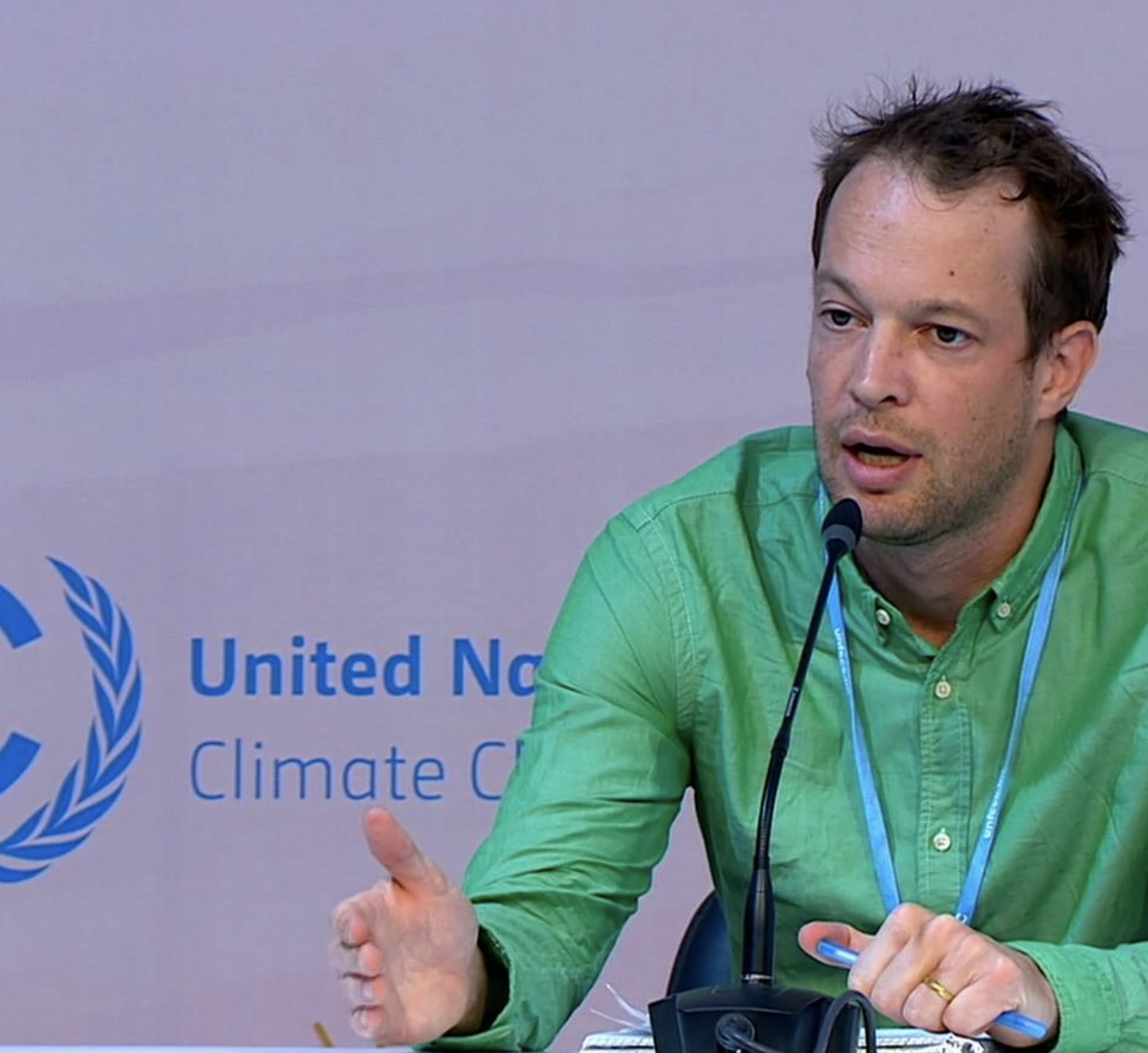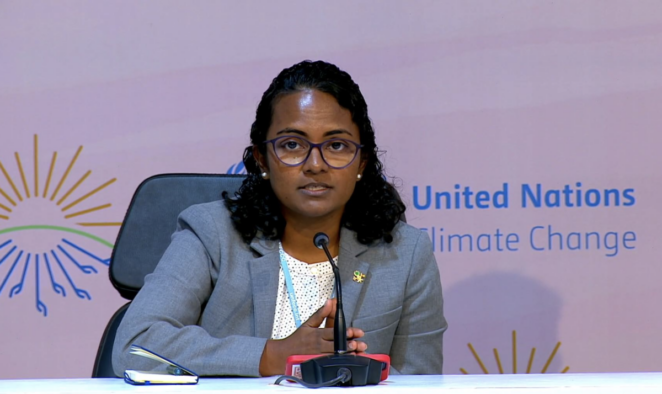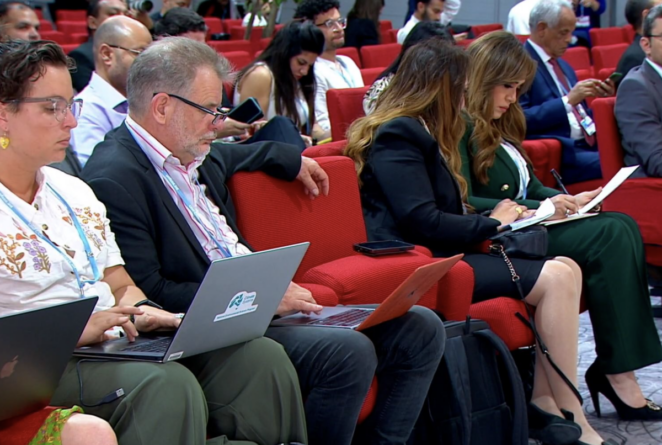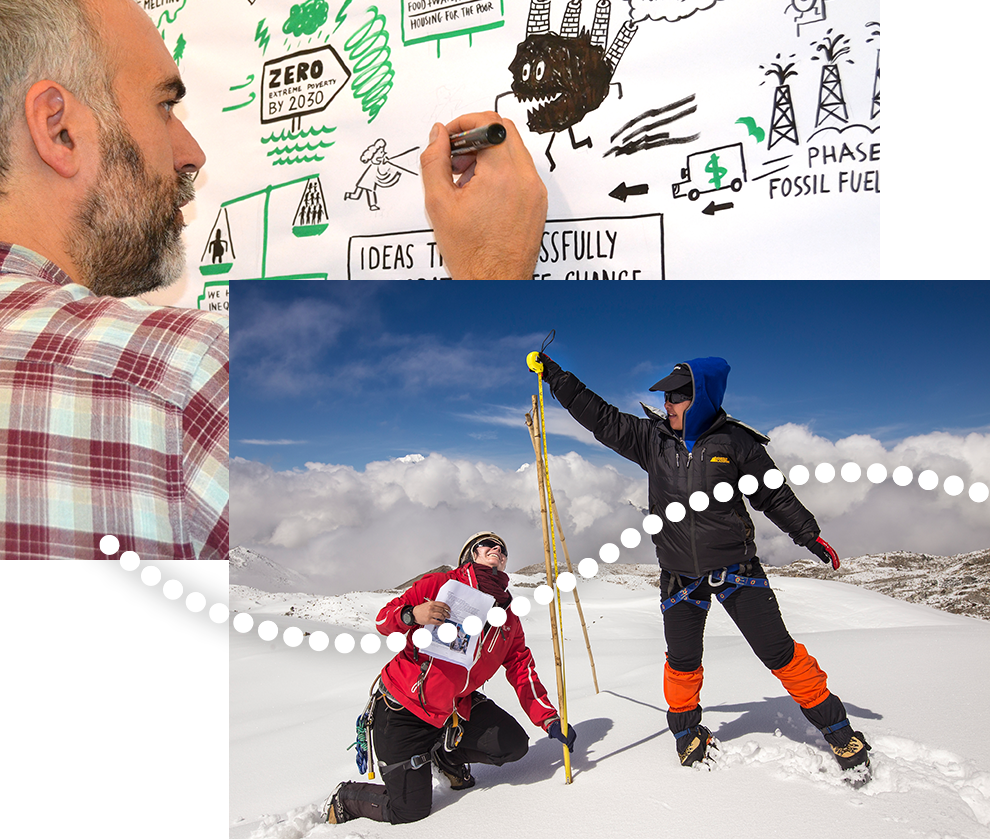Shifting the Narrative on Adaptation at COP27

Summary
At the ”Adaptation COP” in Sharm el-Sheikh, Egypt, SEI’s Adaptation Without Borders partnership advanced the narrativethat climate risk is a shared reality and adaptation must become a collective responsibility.
“We live in a globalized world and climate change doesn’t care about national borders,” Shauna Aminath, Minister of Environment, Climate Change and Technology of the Maldives told Swedish newspaper DN during the second week of the COP27 UN climate change conference.
“Adaptation to climate change is global in addition to being local,” the minister stressed at a press conference hosted by the Maldives and SEI several days earlier. “The flood that submerged large parts of Pakistan earlier this year had a direct impact on the Maldives, which is highly dependent on other countries for its food supplies.”

Other parties to the UN Framework Convention on Climate Change (UNFCCC) shared the view that adaptation is indeed a global challenge.
“We are all connected in one world,” said Thomas Lelkoitien, Deputy Director of Climate Change Adaptationat the Ministry of Environment and Forestry of Kenya, at a side event organized by the EU and Adaptation Without Borders at the EU Pavilion:
Watch the full recording of “Adaptation without borders: strengthening cooperation to manage cross border climate risks”
Lelkoitien explained how Kenya relies on other countries for many of its food imports:
“We import a lot of rice from Pakistan. When the flood earlier this year submerged rice fields and damaged crops, that increased the food insecurity of Kenyans.”
Peter Bentley, Adaptation and Resilience Team Lead at the UK’s Foreign, Commonwealth and Development Office, said his country’s third national adaptation plancurrently under developmentwill take the international aspects of climate adaptation into account. While the first and second such plans had not done so, Bentley said, the third plan was going to be the result of a “whole of government”approach beyond the climate and environment remit involving the Foreign,Commonwealth & Development Officeand Trade.
Other countries are also increasingly mentioning cross-border and cascading climate risk in their national adaptation plans, said Anne Hammill, Director of the NAP Global Network, emphasizing that “the messaging of Adaptation Without Borders is being picked up by countries.”
From a regional perspective, Estherine Fotabong of the African Union Development Agency warned that failing to take into account cross-border and cascading climate risk meant underestimating the true climate vulnerability of regions:
“An approach focused solely on what’s happening within national borders will not give the solutions you’re looking for”.
Drawing on the example of rice: “What adaptation measures South East Asian countries take against sealevel rise and saltwater intrusion on rice fields matters for rice-importing countries in Africa,” she said.
“I can literally think of 1000 ways in which food insecurity can arise from any number of events,” added Tim Benton, Research Director of Emerging Risks at Chatham House.
Benton proceeded to map out how cascading risks produced systemic risks for the world as a whole by sketching an impact chain all the way from the 2010 heatwaves that devastated millions of hectares of crops, resulting in grain prices soaring and food insecurity rising, to the Arab Spring and a destabilized Europe.
“We’ve been telling ourselves the wrong story about adaptation,” said SEI Research Fellow Magnus Benzie. “The adaptation challenge is much more complex than previously thought.”
Benzie cited recent research showing that millions of consumers around the world are dependent on successful climate adaptation in key producer countries of agricultural commodities such as the US, Russia and Brazil.
“The story that is emerging from science is that adaptation is a shared challenge that can deliver shared benefits.”
Magnus Benzie, SEI Research Fellow
COP27 saw clear signs that this story is starting to be echoed by countries and picked up by the media, including major international outlets like The Economist.

Further Resources
How the “Adaptation COP” serves to build systemic resilience will determine its success
Adaptation Without Borders: A brief to participants in COP27
Operationalizing Finance for Loss and Damage: from Principles to Modalities

Comments
There is no contentYou must be logged in to reply.